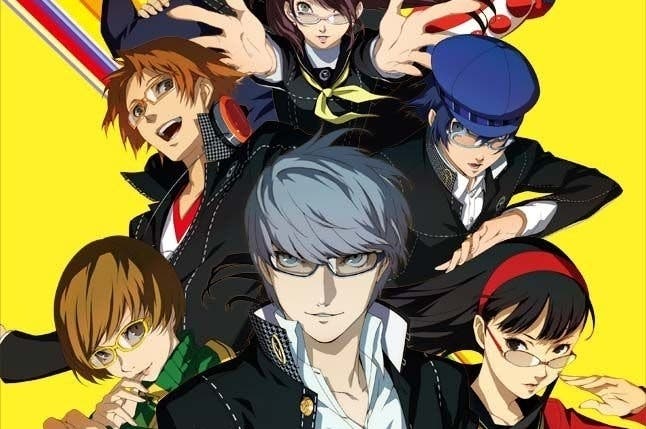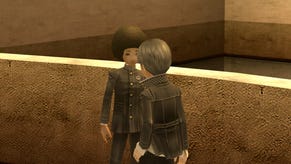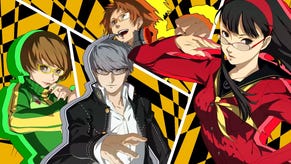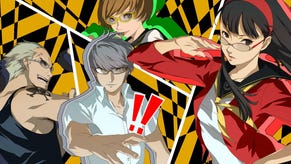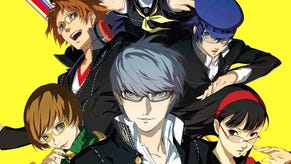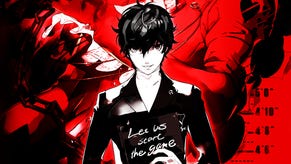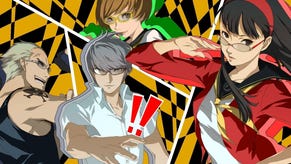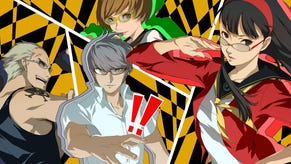Persona 4: Golden review
Teenage kicks.
This import review of the North American edition of Persona 4: Golden originally appeared in December last year. We present it again now to mark the game's launch in Europe this week.
Ostensibly, Persona 4 is a game about a group of teenagers living in extraordinary circumstances. Not that the rural Japanese town of Inaba - the community into which your character disembarks at the start of the game, having fled Tokyo's smog and commotion to stay with his detective uncle and young cousin - is particularly unusual.
Eccentrics reside here, of course: the comely shop owner who turns her premises into a hostess bar in the evenings; the hunch-backed, bespectacled teacher in a state of permanent suspicion of his male students and their imagined girl-scouting during after-school clubs; the uncle himself, a haggard workaholic who lets the television set raise his young daughter in his daily absence. But otherwise, this is a town of uninterrupted routine, its inhabitants living much the same year 60 times over before passing away in uneventful sleep.
At least, that's how things used to be in Inaba. Nowadays, the circumstances are extraordinary. Your train pulls into a town whipped into white hysteria by a grisly murder. Your uncle, charged with looking after you for the year while your parents take an extended business trip, is unassailably preoccupied, working a series of insoluble cases involving the death of teenagers. A new body seems to be discovered at every parting of the fog that blankets the town every few weeks.
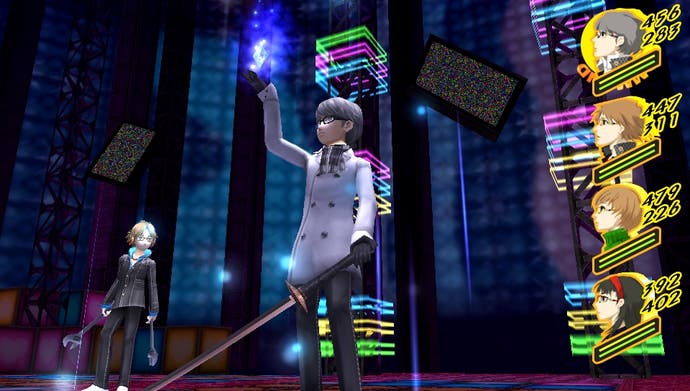
Serial murder in a pastoral town has a whirlwind effect on its inhabitants and you, along with every other student at your new school, are drawn into its irresistible gravitational pull. Drawn, too, into the television. Inaba's other curious secret is that, for those with square eyes to see, TV screens act as portals into an esoteric dimension where monsters roam and where, soon enough, you discover that Inaba's teenagers turn up in the days after they go missing and before their bodies are discovered.
Your character falls in with Yosuke Hanamura, the son of the manager of the local megastore, and Chie Satonaka, a likeable tomboy, and the trio play amateur detectives in the gaps left by their busy school lives. This balance is reflected in Persona 4's rhythm of play, which has you attending lessons and after-school clubs at the local high school during the week, and exploring and engaging in combat inside the TV world in the evenings and during weekends.
The first few hours of Persona 4 are frustratingly hands-off, casting the player as spectator more than active participant, the lead character's sense of readjustment to rural life reflected in your own glacial acclimatisation. But then the game dramatically and systemically quickens, pressing full responsibly for your daily routine, socialising and combat preparations into your palms.
Persona 4 closely follows the Japanese school year of 2011-12, breaking each day into six phases: early morning, morning, lunchtime, afternoon, after school and evening. What you choose to do with your time is up to you, but these choices feed into every aspect of the game.
"These youngsters haven't been kidnapped by some nefarious force or held against their will; rather, they're found struggling blind against their inner demons, held hostage by negative self-image or the whispered lies of their peers."
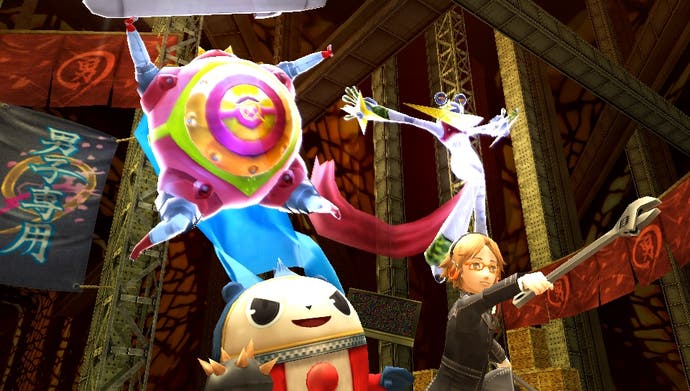
During lessons you'll be asked questions by the teacher. Select the correct answer and you'll improve certain abilities, which may be needed to further certain plot elements. During breaks you can choose to socialise, carrying out small errands to forge social links with other class members which in turn will make your character stronger. Likewise, after-school clubs enrich your inherent abilities as well as your social standing. You may choose to study in your room to improve your knowledge, or take up part-time jobs to earn money with which to buy weapons or items ready to take into the TV world. Inaba is a small town, but the range of opportunities it offers is wide.
Excursions into the TV dimension are heralded by the calendar. The trio soon work out that the murders occur after a few days of fog, so watching the daily weather reports provides a clue to the homicidal tempo. You can choose to enter the TV world at any point, but leave it too long and another body will inevitably turn up.
Inside the TV world, you're presented with a barren house filled with shadow monsters. Make it to the top floor and you'll find the current missing teenager. These youngsters haven't been kidnapped by some nefarious force or held against their will; rather, they're found struggling blind against their inner demons, held hostage by negative self-image or the whispered lies of their peers. The dungeons are a sort of physical manifestation of their own inner turmoil. Defeat these insecurities (via the medium of armed combat, naturally) and you'll free them from their death wish, talking them down off the ledge and back into the safety of Inaba.
During the streamlined battles, you make use of the titular Persona, giant Pokémon-esque familiars summoned from your heart to give aid during battles. As you complete battles and forge social links, you collect more Persona, which can be fused together to create ever more powerful versions. This collecting and nurturing side to the game acts as a mystical counterpoint to the daily grind of school life, and developing and mutating your Persona soon becomes an irresistible pursuit.
"The juxtaposition of the familiar, dry routine of school life with the fantastical dungeon exploration makes for a spellbinding recipe."
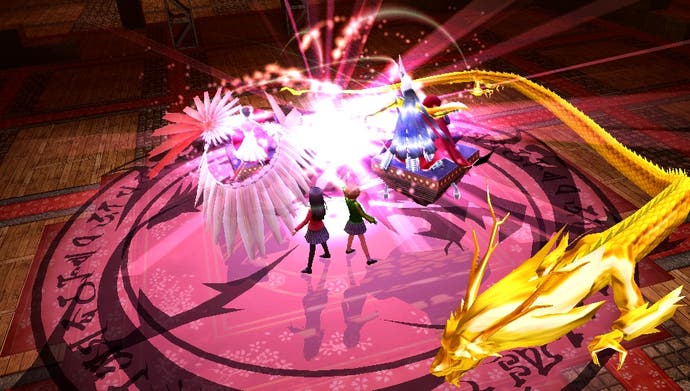
The introduction of new Persona is just one of the myriad enhancements made to this Vita version of 2008's PlayStation 2 original. Others include the capacity to call in help from online players during dungeon exploration and an unfamiliar character, Marie: an amnesiac girl who provides a new social link side story.
Persona 4 isn't Shakespeare. It's not even Agatha Christie. Its characters offer their lines with all the awkwardness and overstatement of teenagers acting in a school play. The dialogue is passable, for a game, but the pacing of the dramatic interludes is amateurish. But the writers and designers make up for these shortcomings with heart and voice, while the 365-day structure and tight geography of Inaba plunge the player into the depth and nuance of a social scenario in an unusually effective manner. The juxtaposition of the familiar, dry routine of school life with the fantastical dungeon exploration, not to mention all the narrative and systemic links between the two, makes for a spellbinding recipe.
Thematically, too, Persona 4 has real impact. Ostensibly, this is a game about being a teenager living in extraordinary circumstances - but beneath the murder-mystery premise, it's easier to relate to than that. It's a game about negotiating the murky waters of adolescence, rolling with the hurtful buffeting of pubescent relationships, grappling with self-image, peer pressure and modern life's demand that we all grow up quicker than our parents did.
Indeed, the absence of parental figures in the game is conspicuous. Your character has been abandoned by his own parents and, in Inaba, he is again abandoned by his uncle. The nightly sight of his young cousin sitting alone by the television is a scene of quiet domestic tragedy that runs through the game's story like a melancholic pulse. Many of the teenagers you are called to save have been abandoned by parents, or placed in positions where they must assume adult roles ahead of time.
In this way, Persona 4 is very much about being a teenager in today's world - and it expresses all that hope and misfortune better than any other video game.
